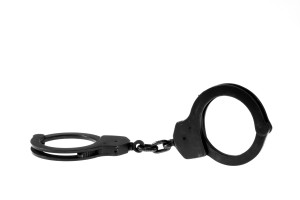One of the big issues that has made its way to the United States Supreme Court is whether a driver can be charged with a crime for refusing to submit to an alcohol breath test when asked by police upon a showing of probable cause that the driver is under the influence of alcohol.
 Essentially, in some states such as the Commonwealth of Massachusetts, a driver has the right to decline a breath alcohol test (generically called a Breathalyzer), and this refusal cannot be used against the defendant in a court of law.
Essentially, in some states such as the Commonwealth of Massachusetts, a driver has the right to decline a breath alcohol test (generically called a Breathalyzer), and this refusal cannot be used against the defendant in a court of law.
As our Boston drunk driving accident attorneys can explain, this is due to an interpretation of the Massachusetts Declaration of Rights Article 14, which prevents a person from be required to offer incriminating statements about themselves. This is similar to the Fifth Amendment of the United States Constitution, and it should be because John Adams drafted much of both documents.
The Supreme Judicial Court (SJC) in Massachusetts, which is our state supreme court, decided that saying no to taking a breath test is essentially the same as saying you are too drunk to take the test, and that would be an admission of guilt, which cannot be used in court. This is not true in most other states, and, while you can lose your driving privileges for not taking the test, your refusal cannot be used against you in a court of law.
In many other states, as discussed in a recent article from the Boston Globe, it is a separate crime to refuse to take a breath test, and this is what the United States Supreme Court was looking into during a recent appeal with oral arguments being requested. It seems that the judges are skeptical, based upon the questions presented to the appellate attorneys, as to whether it is constitutional to charge a driver will a crime for not submitting evidence against themselves.
One thing that is important to keep in mind is that there are vastly different standards of proof in civil cases, and just because some evidence is not admissible in a criminal case, does not mean that an alleged at-fault driver who drinks to the point of intoxication and then gets behind the wheel of car and causes an accident will be able to use the same protections in the civil car accident lawsuit as he or she did in a criminal trial.
In many cases, the outcome of the criminal trial can be of great help in the subsequent civil lawsuit if the driver is convicted, but the fact that an alleged at-fault drunk driver is not convicted of operating a motor vehicle under the influence of drugs or alcohol (OUI) does not mean that you cannot prevail in a subsequent civil personal injury lawsuit following a drunk driving accident. Again, the reason for this is because of the different standard of proof in a civil car accident lawsuit and a criminal prosecution for drunk driving.
If you or someone you love has been injured a Boston drunk driving accident, call for a free and confidential appointment at (617) 777-7777.
Additional Resources:
High court expresses doubts about drunken driving laws, April 20, 2016, Boston Globe, By Sam Hananel
More Blog Entries:
School Bus Driver Charged with Drunk Driving in Sturbridge, April 7, 2016, Boston Drunk Driving Injury Lawyer Blog
 Boston Drunk Driving Accident Lawyer Blog
Boston Drunk Driving Accident Lawyer Blog

